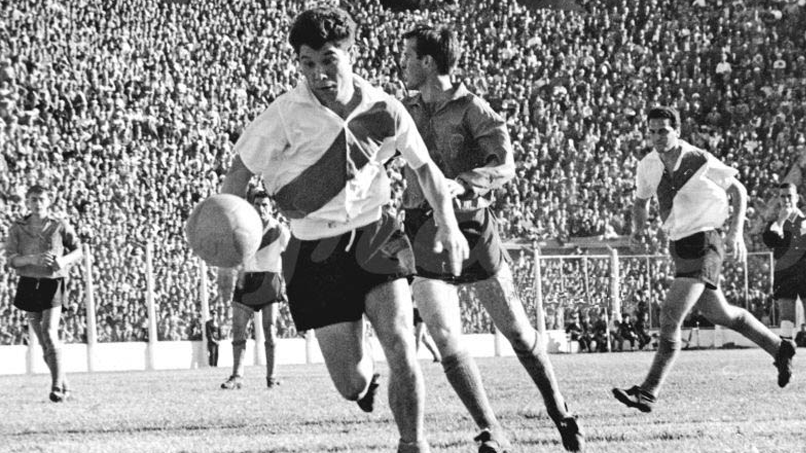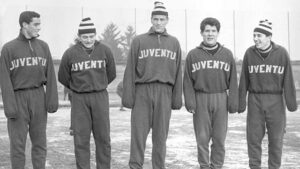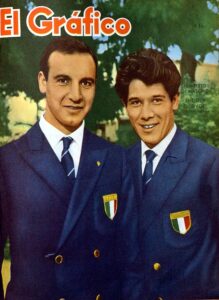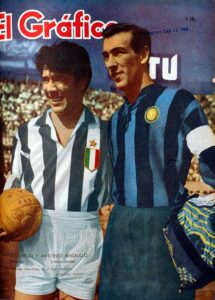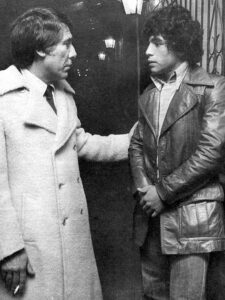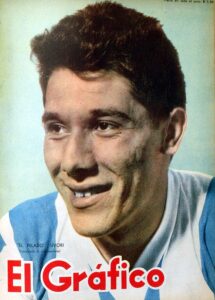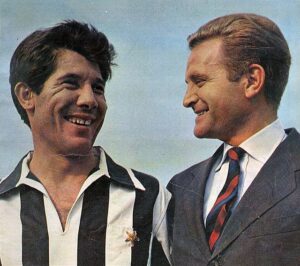Omar Sívori – The Magician of Italian Football
An Icon of Flair, Genius, and Controversy
Omar Sívori was not just a footballer—he was an artist on the pitch, a magician with the ball, and a personality that transcended the sport. His unique style combined elegance, technical mastery, and an unrivaled ability to humiliate defenders with audacious dribbling. Whether dazzling fans at River Plate, making history with Juventus, or representing both Argentina and Italy on the international stage, Sívori’s impact on football remains undeniable.
Early Life and Rise in Argentina
Enrique Omar Sívori was born on October 2, 1935, in San Nicolás, Argentina. From a young age, his ability to control the ball and beat opponents was evident. He joined River Plate, one of Argentina’s most prestigious clubs, where he quickly rose to prominence.
At just 18 years old, Sívori made his professional debut in 1954. His influence on River Plate’s attack was immediate, and by 1955, he helped the club win the Argentine Primera División. His fearless dribbling, unpredictable movement, and goal-scoring ability made him one of the brightest young talents in South America.
However, Sívori’s career would take an unexpected turn when European football came calling. In 1957, River Plate accepted a world-record transfer fee from Juventus—an astonishing 10 million pesos, which helped the Argentine club finance the construction of their stadium, the Estadio Monumental.
Juventus and the Golden Era
Moving to Juventus in 1957 was a defining moment in Sívori’s career. The club was looking to rebuild after a difficult period, and alongside John Charles and Giampiero Boniperti, Sívori formed the legendary attacking trio known as the “Magical Trio.”
Sívori was the perfect contrast to Charles’ physical presence and Boniperti’s leadership. While Charles dominated aerial battles, Sívori danced past defenders with effortless dribbling. His low center of gravity, exceptional balance, and quick acceleration made him a nightmare for defenders.
Between 1957 and 1965, Sívori led Juventus to one of their most successful periods, winning:
- Three Serie A titles (1957–58, 1959–60, 1960–61)
- Two Coppa Italia titles (1958–59, 1959–60)
One of the defining moments of his Juventus career came in 1961, when he won the Ballon d’Or, becoming the first Juventus player to receive the award.
But it wasn’t just his footballing ability that made Sívori famous—it was his personality. He played with an arrogance that both delighted and infuriated fans. He was known for his sharp tongue and fierce competitive spirit, leading to frequent clashes with referees.
Sívori once famously remarked:
“Did I play with Mazzola and Rivera? They played with me!”
This quote encapsulated his self-confidence—he wasn’t just a great player; he believed he was the best on the pitch.
A Fiery Character on the Pitch
Sívori’s playing style was defined by his audacity. He would often dribble past the same defender multiple times just to entertain the crowd. His trademark move was the nutmeg, a technique he used so frequently that some Italian defenders considered it an insult.
While loved by Juventus fans, he was also one of the most controversial players of his time. His temper was legendary, and he was regularly involved in heated exchanges with opponents and officials.
However, his genius was undeniable. He could score from impossible angles, control the tempo of a game, and produce moments of brilliance that made fans gasp in amazement.
International Career – From Argentina to Italy
Sívori represented Argentina in the 1957 Copa América, playing a key role in their triumph. His performances in that tournament solidified his reputation as one of the best players in South America.
However, after moving to Juventus, FIFA regulations at the time prevented players from switching national teams unless they had ancestry in another country. Since Sívori had Italian heritage, he was eligible to play for the Italian national team, making his debut in 1961.
Despite his brilliance, Sívori’s international career with Italy was disappointing. He played in the 1962 World Cup, but Italy failed to make an impact. Unlike his time at Juventus, where he had world-class teammates, the Italian national team struggled to support his attacking genius.
Later Years and Retirement
After eight glorious years at Juventus, Sívori moved to Napoli in 1965. While past his peak, he still displayed flashes of brilliance, helping Napoli challenge the dominant teams of Serie A. However, persistent injuries led to his retirement in 1969.
After retiring, Sívori transitioned into football management. He briefly managed Argentina’s national team, but coaching never held the same passion for him as playing.
Sívori passed away on February 17, 2005, at the age of 69, but his legacy remains intact.
Why Omar Sívori is a Football Legend
- Ballon d’Or winner (1961) – Recognized as Europe’s best player.
- Three-time Serie A champion with Juventus – A key figure in their golden era.
- Copa América winner with Argentina (1957) – Proved his international class.
- A unique playing style – His dribbling, nutmegs, and flair made him unforgettable.
- A true footballing personality – He played the game with arrogance, but he backed it up with skill.
Sívori once said:
“He who has class has no age. Whoever has an era means he has no class.”
This statement reflects his belief in pure footballing talent over hype. His name remains legendary in both Argentina and Italy, remembered as a player who defined an era with his brilliance.
Collecting Omar Sívori Memorabilia
For collectors, owning a piece of Omar Sívori’s history is a tribute to one of football’s most captivating players. Signed photographs, jerseys, and historical match programs from his time at Juventus remain highly sought after.
Final Thoughts
Few players in history combined skill, charisma, and controversy as effortlessly as Omar Sívori. His ability to entertain, dominate matches, and define an era of Italian football makes him one of the game’s true greats.
Though decades have passed since he last played, his influence remains. He was not just a footballer—he was a spectacle, an entertainer, and a legend whose name will never be forgotten.
